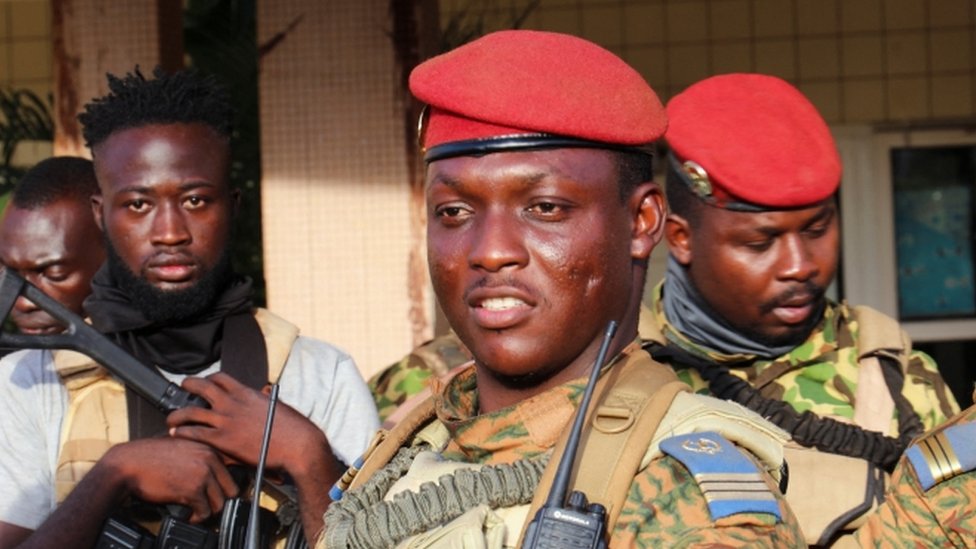Capt Ibrahim Traoré: The Rising Influence of Burkina Faso’s Military Leader
Capt Ibrahim Traoré, the bold military leader of Burkina Faso, has emerged as a captivating figure not only within his country but throughout the African continent and beyond. At 37, Traoré has successfully cultivated a charismatic image aligned with the ideals of pan-Africanism, advocating for liberation from perceived Western imperialism and neo-colonialism.
A Vision for Change
Since assuming power following a coup in 2022, Traoré has prioritized establishing strong alliances, particularly with Russia, distancing Burkina Faso from its historical ties with France. His government has enacted significant reforms, including the creation of a state-owned mining company that mandates foreign firms to cede a 15% stake in their operations to Burkinabé citizens and transfer necessary skills to the local workforce.
Recent developments include a newly authorized investment by Russian mining company Nordgold in April 2025, as part of Traoré’s mission to transform the nation’s approach to its mineral wealth. The junta is also working on building a gold refinery and, for the first time, establishing national gold reserves. These initiatives symbolize Traoré’s vision of ensuring that Burkina Faso reaps the benefits of its resources.
A Shift in Popularity
The ideology promoted by Traoré has struck a chord across Africa, appealing to a growing discontent regarding the West’s influence. Beverly Ochieng, a senior researcher at Control Risks, observes that Traoré’s rhetoric resonates with many Africans questioning the existing economic and political structures. His ascent has been correlated with a decline in support for Western-style democracy, as many citizens seek alternatives promising empowerment and socio-economic advancement.
Traoré’s captivating speeches, especially at the 2023 Russia-Africa summit, have garnered extensive media attention, while the spread of social media has further solidified his appeal. His revolutionary messages transcend borders, connecting with those in the African diaspora, particularly in the United States and the United Kingdom.
Contrasting Perspectives
Despite his rising popularity, Traoré has faced criticism, particularly from leaders in the West. French President Emmanuel Macron has labeled him as part of a “baroque alliance” that intertwines self-proclaimed pan-Africanists with neo-imperialists, primarily criticizing ties with Russia. Meanwhile, Traoré’s inability to thwart a ten-year Islamist insurgency and his government’s suppression of dissent raise concerns regarding the stability and future of his leadership.
Generational Appeal
Rinaldo Depagne from the International Crisis Group believes that Traoré’s youthful energy resonates with Burkina Faso’s demographics, where a majority are under 18. His adoption of Thomas Sankara’s legacy—an icon of integrity and revolutionary spirit—enables him to position himself as a beacon of hope amidst chaos. This connection to the past, alongside a confident public persona, helps him maintain a favorable image.
| Initiative | Description | Significance |
|---|---|---|
| State-Owned Mining Company | Requires foreign firms to cede a 15% stake | Empowers local workforce and economy |
| Gold Refinery Construction | Establishing national gold reserves | Strengthens economic sovereignty |
| Social Media Campaigns | Promoting his vision and ideology | Expanding support base across the diaspora |
The Path Ahead
As Traoré’s regime navigates the volatile political landscape, observers highlight the importance of establishing enduring state institutions and promoting peace to prevent a deterioration into autocracy. His leadership, along with parallel movements in neighboring countries, illustrates a significant shift in West Africa, prompting changes in foreign relations and governance models. While the future remains uncertain, Capt Ibrahim Traoré’s impact on Burkina Faso and the continent is undeniable.


